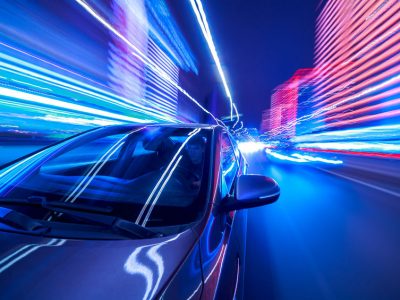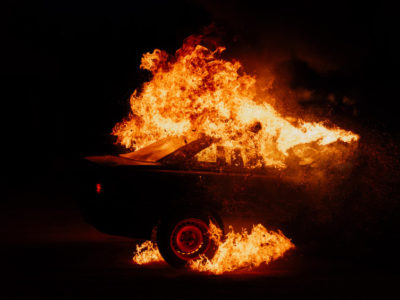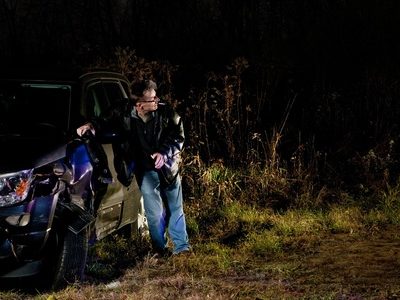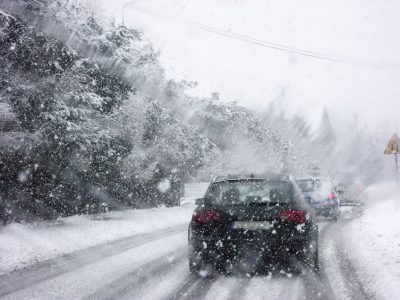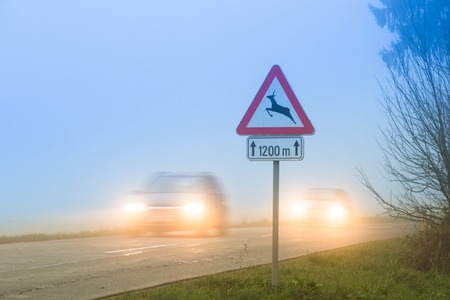

It’s Deer Season: Prevent a Deer Car Accident!
Fall means deer hunting season to many and the reality is that there are more deer running around our neighborhoods and onto our roads at this time of year.
According to the National Highway Traffic Safety Administration (NHTSA), there are approximately 1.5 million deer, elk and moose-car accidents in the United States every year. One-hundred-fifty to 200 of those collisions result in a human fatality, the average damage to a car or truck is $3,103 and the total cost of property damage is estimated at $1.1 billion annually. Deer populations have been growing while being simultaneously displaced by urban sprawl, which is leading to more accidents each year. According to State Farm’s claims data, there were 2.3 million car-deer vehicle collisions for the two-year period ending on June 30, 2010. That’s 21.1 percent more than five years earlier.
The reason we have the expression “frozen like a deer in the headlights” is because when a bright light shines into a deer’s eyes, they freeze in position until their eyes readjust. Essentially, the deer is experiencing temporary blindness. Fall is deer migration and mating season for wildlife like deer and elk, which means they are on the move and are more likely to cross into roadways and oncoming traffic.
Prevent a Deer Car Accident!
What to do if a Deer-Car Accident is Unavoidable
If you are about to hit a deer; DO NOT SWERVE! The best thing to do is hold on tightly to the steering wheel, gently put your foot on the brake and brace for impact. It goes without saying that you should have your seatbelt buckled up. An average deer weighs 200 pounds while a car weighs 3,000 pounds; the simple math tells you that the car will win. After the accident, pull off to the side of the road, if possible, and then call the police and your insurance agency.
A car-deer accident will be filed as a comprehensive insurance claim. If you swerve to miss the deer and hit a tree or other barrier, you would need to file a collision claim. The important distinction is that a collision is charged as an accident on your driving record, whereas a comprehensive claim is not.
Tips to Prevent a Deer-Car Accident
- Stay alert, particularly from dawn to dusk and during the fall/mating and spring seasons when the most deer-car accidents occur.
- Never drink or do drugs and drive.
- Look for deer or elk crossing signs and be extra cautious in these areas.
- Slow down in areas with high deer and elk populations.
- Look for more than one deer. Deer are herd animals and they usually travel in a single file line. If you see one cross the road, there are likely more following behind.
- Use your high beams on dark, windy roads. They help with overall visibility but will also track the reflection in the deer’s eyes more quickly.
A car accident involving a deer, elk or moose can be traumatizing and cause extreme personal injury and damage to your vehicle. In some cases, it can even cause a fatality. Clearly, the deer cannot be sued but occasionally another party is responsible for the collision and could be sued for damages.
If you or a loved one were injured in an accident, you have enough to deal with. Let an experienced accident attorney fight for the full compensation that you deserve. It is not uncommon to receive a settlement from the insurance company that is five to ten times bigger with the help of a lawyer. Call the caring accident attorneys at Tario & Associates, P.S. in Bellingham, WA today for a FREE consultation! We have been representing residents of Whatcom County, Skagit County, Island County and Snohomish County since 1979. You will pay nothing up front and no attorney fees at all unless we recover damages for you!

